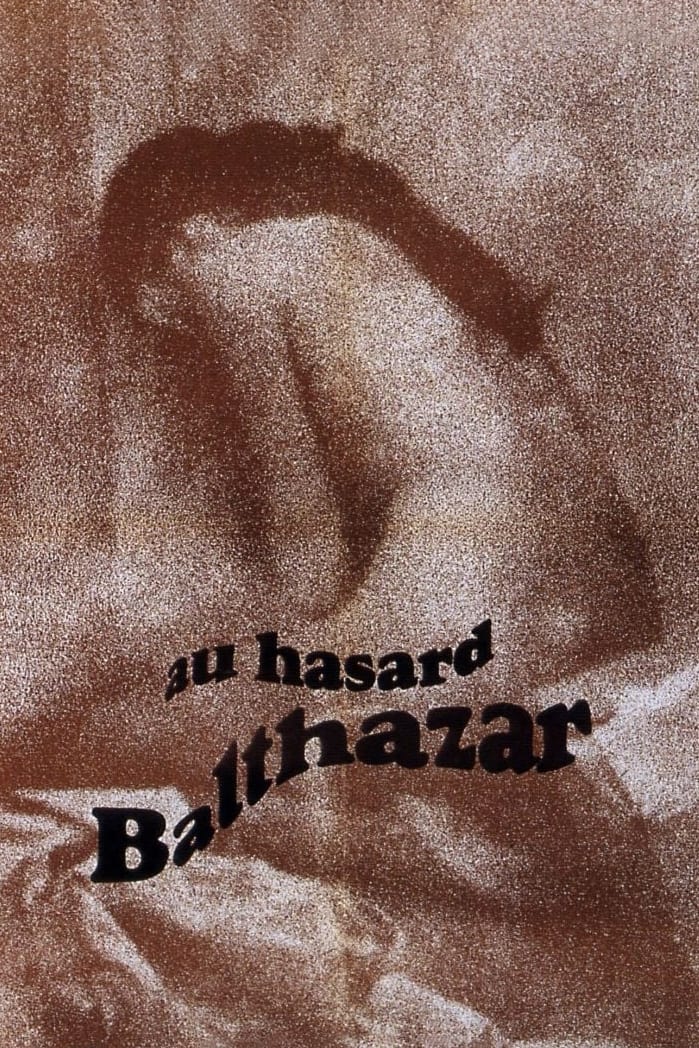
The story of a donkey Balthazar as he is passed from owner to owner, some kind and some cruel but all with motivations beyond his understanding. Balthazar, whose life parallels that of his first keeper, Marie, is truly a beast of burden, suffering the sins of humankind. But despite his powerlessness, he accepts his fate nobly.
28 Nov Au hasard Balthazar (1966)
Burdens
Sometimes the celebration a film has garnered becomes a burden. This is perhaps the most burdened of all the films I know. The Criterion DVD has a French TeeVee program made when the film was released. It features French intellectual celebrities (which is what France has instead of real intellectuals) tooting salvation in every direction.
Even the metaphors evoke a saviour: the film accepts the sins of the world and invests them in this beast that is intended to be the one that carries Jesus into Jerusalem in his first act as the Christ.
Since then, this has been a sort of altar of purity, a touchstone of seriousness.
Whew. So watching this is a sort of test for you. Can you take it as art, a direct conversation to you from a competent artist with a coherent vision? Can you touch it without all those lesser ideas that float around it like a corrosive fog?
I hope so. It is a gentle thing and deep. But not at all in the way that chin polishers thought at the time. Sure, their comments are art too, but not good art.
I suggest you look at it with all the tools of hindsight we have now. We now know that film is the most soluble of arts. It (and music which it subsumes) penetrates more deeply, more quickly, so a key challenge of the filmmaker is to set the hilt. How far down should it go; how deep into our mind before it settles and begins to burn and bond with us?
Recent thinking about this has several techniques of what I call folding. Many of my comments address this. But this accomplishes the same thing without such engineered flair.
The goal is to put the observer in the film, and (perhaps independently) to bring the film closer to the observer.
The first is done simply here. Balthazar is the observer, our surrogate, us. (The name is from Lawrence Durrell’s “quartet” of books where the character is a magical observer, or so Bresson thought.) He watches as we must watch in our theatre seats. Perhaps he is disturbed. Perhaps he wishes to do something, but what he is structurally prevents it. So we see his placidity as ours.
The effect is heightened by the placidity of the actors. This is the second trick, to bring the story closer to us. Since we have been established as flat, abstract, placid, the acting and presentation will be made so as well. We have it both in the style of presentation (the acting is without any affect) and in the story; Marie simply complies without complaint. Her parents are as accepting of their fate.
It may have been revolutionary, but i doubt it. After all, every couple years the French seize on some event that proves they drive the world and this was it for that year. But that doesn’t take away the perfection of this little channel; very direct, very clean, very deeply inserted into our consciousness with precision over where it stops.
But then you are left with the question of whether all that perfection in technique is worth it. Was it used to effect? Did it change my life? Was it in the end art, real art, the kind that murders weak souls and marries strong ones?
No, I don’t think so. Try “Heart of Glass” for something with some less gentle toxicity that uses this same technique. Techniques.
Posted in 2005
Ted’s Evaluation — 3 of 3: Worth watching.


No Comments